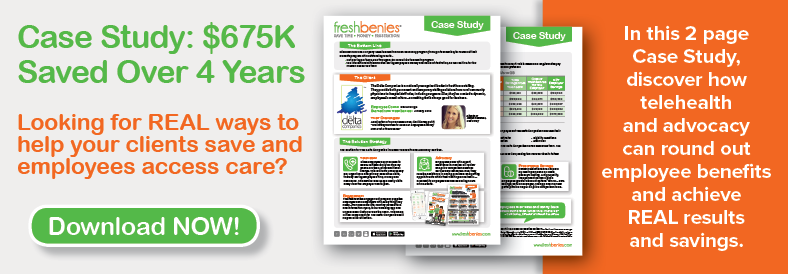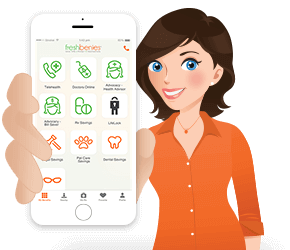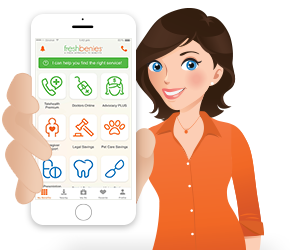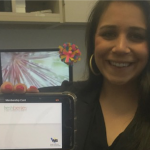3 TIPS FROM AN HR DIRECTOR – HOW TO BE A BENEFITS SUPERHERO
Have you ever heard the saying, “You can’t spell hero without HR”?
Well in my years of being a Human Resources Director (HRD), I’d have given anything for a couple of reflective gold cuffs and a rope to get the truth out of people!
But seriously, I assure you when an insurance broker could clearly define the benefits package and show me how to help employees understand and use the benefits, they became my superhero!
Based on my experience, I’m sharing 3 tips for how brokers can deliver a stand-out experience to the HR Directors they serve...
1. Make them look like the expert
No Human Resources Director wants to be caught unaware when an executive or employee has a specific benefits question.
As brokers, you’re the expert consultant for your clients. The HRD is the internal “go to” person for every employee and executive in your group. Take a “Train the Trainer” approach to help the HRD look like an expert. What can you do to give them more understanding of the benefits strategy being implemented? How are industry trends playing out in real ways for their group? If you explain the details of the group’s benefits package in this manner, they’ll have more impact as the resident expert. Added bonus: this will save you time and make you look even better.
HRDs now occupy more and more of the strategic seats at the table – and this is a new experience for some of them. They’ll appreciate your partnership and the insight you give to be better equipped for these discussions and the ongoing conversations with employees about their specific benefits.
2. Stop, collaborate and listen
There’s an old saying, “God gave you two ears and one mouth – use them accordingly.” As you meet with your HRD, really listen to the needs behind the questions they’re asking. Remember, the HRD is uniquely positioned to interact with you – the SME (subject matter expert) – on benefits AND to hear the real needs of employees and their families. Are there comments or questions from the HRD that signal an unmet need? Is there confusion on industry terminology or a better way to pass understanding along to employees? Are there insights that might impact the benefits you recommend?
For example, we know today’s health plans continue to demand higher levels of consumerism from members. The HRD is likely hearing this term (consumerism) along with others (advocacy, price transparency, etc.) on an increasing basis. Don’t assume an HRD’s understanding of all the terminology. And if you’re not recommending consumerism tools as a part of the benefits strategy or help on how to educate employees on using them, now’s the time. There’s a real opportunity to be the superhero by offsetting higher out of pocket costs for employees while delivering bottom-line savings for the employer.
3. Strategize on communication delivery
I recently attended a Benefits Roundtable discussion hosted by a local SHRM affiliate. The speaker, Eddie Reeves of The Reeves Strategy Group, delivered a powerful presentation called “Molding a Message that Moves, Motivates, and Mobilizes Your People”. Reeves suggested it’s the job of brokers and employers to figure out what employees want and the best methods to communicate how the offered benefits satisfy those needs.
Make it a goal to really get to know a company’s culture by talking with the HRD. Do employees all work in one location, several offices, or remotely? What electronic messaging and enrollment systems do they have? Is there a company newsletter? Are there common dining areas or workout facilities? Does the company host employee appreciation events? Answers to these questions will give you the quickest and most effective means of communication for the group. These types of questions can also spark a bit of creativity like setting up a raffle, finding a champion to share their benefits success story or hosting a specific benefits event. Take the time to show you care and use the HRDs internal company expertise to help everyone in the group get the information they need about their benefits.
Hey, we may not be saving the world, but ensuring employers and employees have and understand their family’s health benefits is truly important. Partnering with the HRD in a way that stands out is a win-win for everyone.
Now it’s your turn! What needs or challenges do you hear from HRDs? What successful ways have you integrated the HRD into your benefits conversations at a higher level? Comment below or email me at terri@freshbenies.com.
















